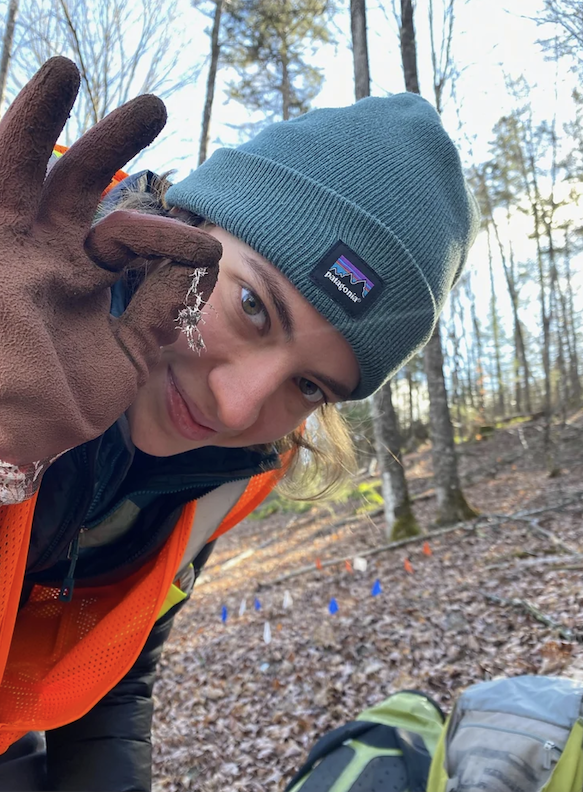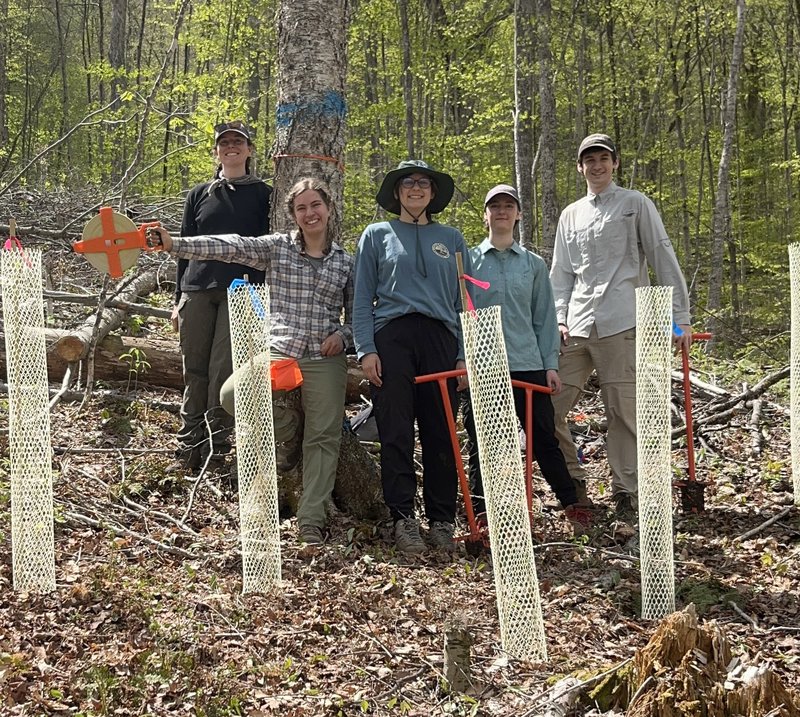
Editor’s Note: This article was originally posted on Nov. 8, 2024, and updated March 7, 2025, to reflect Eva’s Katherine S. McCarter Graduate Student Policy Award.
Eva Legge, a first-year Ph.D. student majoring in biology in the College of Arts and Sciences (A&S), is the recipient of three prestigious honors: the Ecological Society of America’s (ESA) 2025 Katherine S. McCarter Graduate Student Policy Award; a Mollie Beattie Visiting Scholar award from the Society of American Foresters (SAF) and a graduate research fellowship from the National Science Foundation (NSF).
Legge’s most recent recognition, the Katherine S. McCarter Graduate Student Policy Award, offers practical training and experience in science policy. This spring, Legge will travel to Washington, D.C., to participate in policy and communications training at the ESA headquarters. Legge will also meet with congressional policymakers on Capitol Hill to advocate for federal investments in biological and ecological sciences.
Last October, Legge was named a Mollie Beattie Visiting Scholar by the SAF. That award honors Beattie, who was the first woman to head the United States Fish and Wildlife Service, and its aim is to foster diversity in the natural resource professions.
Legge received a $10,000 scholarship to pursue her research on the role mycorrhizae play in boosting forest resilience. Mycorrhizae are fungi that grow on the roots of trees and plants and provide mutual benefits. As a Mollie Beattie Visiting Scholar, she is gaining valuable professional development and networking opportunities. In addition to connecting with SAF members across the country, she will also submit her research to an SAF journal and collaborate with staff and partners at the SAF headquarters in Washington, D.C.
Legge also won a graduate research fellowship from the National Science Foundation in summer 2024. The NSF fellowship includes a stipend and access to professional development opportunities. According to the NSF program, its mission is to “help ensure the quality, vitality and diversity of the scientific and engineering workforce of the United States.”
Legge is part of A&S biology professor Christopher Fernandez' Mycorrhizal Ecology Lab and SUNY ESF Professor Andrew Vander Yacht's Applied Forest and Fire Ecology Lab. As a member of these teams, she studies how climate-adaptive forest management, such as timber harvest, assisted tree migration and prescribed fire, affects the symbiotic relationship between fungi and forests. Their goal is to devise strategies to safeguard these crucial yet delicate symbioses, ultimately aiding in the development of effective forest management practices.

Legge (second from left) and her team have been conducting their latest field research in Huntington Forest, located in the Adirondacks. (Courtesy: Eva Legge)
“Climate change will likely add to the many stressors facing eastern U.S. forests. However, the positive benefits of fungal partnerships with tree roots can, in certain contexts, increase a forest’s stress tolerance,” Legge said in an SAF press release.
With these awards, she will continue her research exploring the connection between forest management, mycorrhizal symbioses and seedling success. She hopes to improve management practices and maximize the advantages mycorrhizae offer to “future-adapted” seedlings, thereby enhancing the resilience of America’s forests.
“Eva is an exceptionally driven graduate student motivated by addressing critical knowledge gaps in forest ecosystem resilience to global change,” says Fernandez. “Her research focuses on the crucial role of belowground dynamics in forest resilience, bridging fundamental ecological research with applied forest management. Her multidisciplinary approach promises to advance both basic scientific understanding and sustainable land management practices in a changing world. I am thrilled to see her outstanding work recognized with these prestigious awards.”
Learn more about the Katherine S. McCarter Graduate Student Policy Award, the Mollie Beattie Visiting Scholar Program and NSF Graduate Research Fellowship Program.
